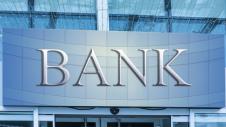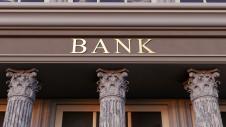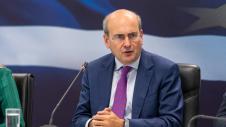The Single Supervisory Mechanism (SSM) has yet to decide on whether there will be any risk attached to the state guarantees to be offered by the Hercules asset protection scheme in further delays on a crucial detail of the proposal that is raising concerns among bank officials.
Despite expectations from government officials that the issue will be soon settled, the SSM has yet to reply to a request from Greek authorities calling for the bonds from the securitized asset to carry a zero risk factor. This is an issue that has been raised by BusinessDaily.gr since October.
Greece's top official in charge of the Hercules plan, Deputy Finance Minister George Zavvos, spoke to parliament about it a few days ago. Zavvos, who is seen to have mishandled talks with the European Central Bank on the proposal, said that each lender will present its securitization plans to the bank regulator who will decide on whether or not, additional capital measures are needed. This move, however, essentially cancels the state guarantee offered by the plan.
The equation is becoming increasingly complex, bank officials point out. In the case of Eurobank, the lender has adopted the advanced internal ratings-based (IRB ) methodology to calculate capital needs. This allows for specific assessments to be made by regulators. In the case of Greece's three other top lenders - National Bank of Greece, Piraeus Bank, and Alpha Bank - they use the standardized methodology that does not leave room for much flexibility: either the regulator accepts the state guarantees and risk-weighted assets (RWA) will be zero or the RWA will be at 100 percent.
Such a development would create serious problems in plans by banks to reduce bad loans via securitizations via the Hercules plan as more capital will be needed.
Talks between lenders and regulators, along with the participation of the Bank of Greece, are continuing in a bid to find common ground for all parties involved that does not involve banks raising additional capital. The upgrading of Greece's debt to investment grade would solve these problems and this may occur after summer though this is by no means certain.
The ECB understands the position that Greek banks are in, the tight deadlines faced with bad debt reduction targets and market limitations amidst a general mood to find an operating solution. But there are mixed views on this in Frankfurt, with some insisting that rules be strictly applied to all.
YIANNIS PAPADOGIANNIS









